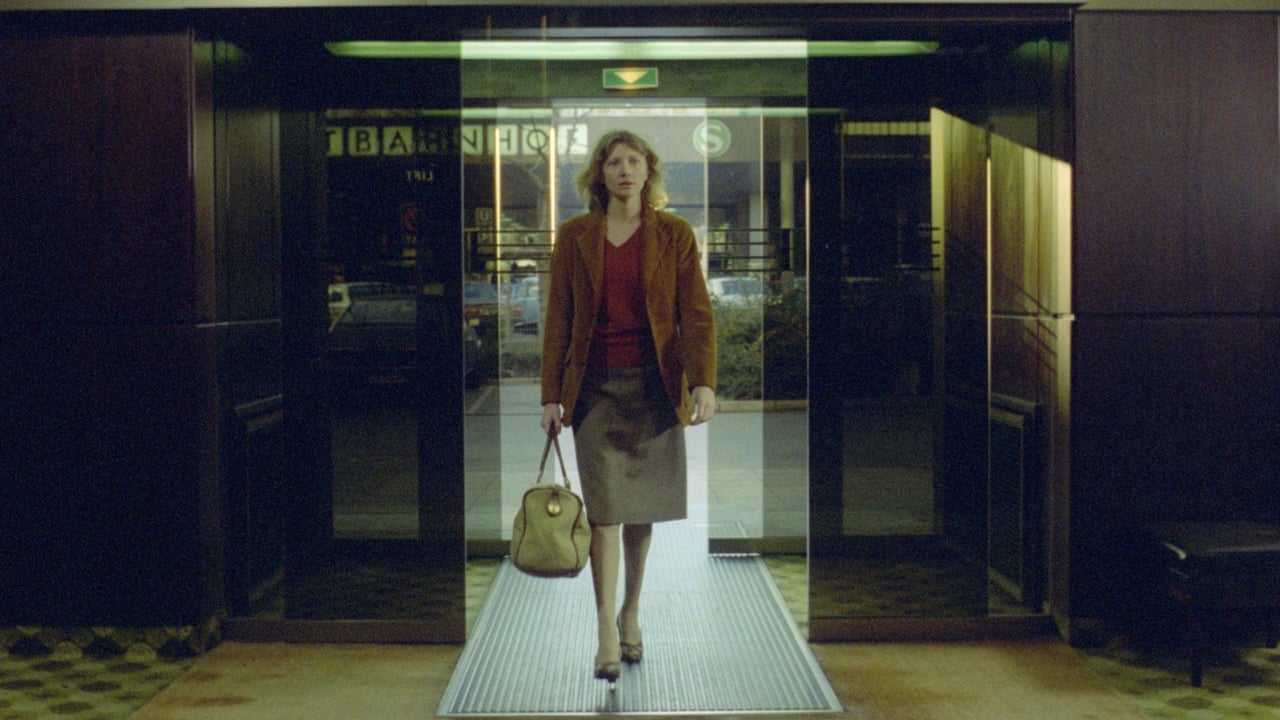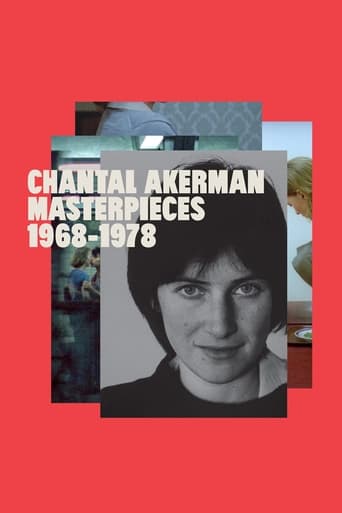LastingAware
The greatest movie ever!
Protraph
Lack of good storyline.
2freensel
I saw this movie before reading any reviews, and I thought it was very funny. I was very surprised to see the overwhelmingly negative reviews this film received from critics.
Tayyab Torres
Strong acting helps the film overcome an uncertain premise and create characters that hold our attention absolutely.
Jithin K Mohan
My first impression on The Meetings of Anna was that Lost in Translation directed by a gloomy Wes Anderson. This is my first Akerman, so I didn't know what to expect from this. The more I think about it it feels like this is the kind of film that grows on you as time passes. The loneliness of Anna all the while everyone she meets is opening up to her although she always seeming distant was quite relatable. There are so many choices that life offers you, but you are confused and miserable so that you reject all that and yearns for something you don't know yet or something you are denying. I saw it a couple of days ago but it has a deeper impression on me now since it has been in my head for these days.
robbybonfire
When a single woman, in her early 30's with plain features - starting with expressionless eyes and thin lips unadorned by cosmetics, attempts to deal with people in her professional career world of film-making, in her personal world of family, and with her few, select friends, her inability to ignite a spark of spontaneity in even the most casual social encounters foreordains a shallow, isolated existence from which there can be no respite.At no time are we given a hint as to why this young woman has become traumatized and de-sensitized to the point where her inter-personal responsiveness is mechanical and roboticized, and to where she is so emotionally-blocked she cannot even return a wave from a man who befriended her on a train trip from Cologne to Brussels, just walking out of his life as though they had not spent several hours in mutual soul-searching for a meaning in life beyond mere existence and attending to business matters. And to where, when her brief visit with her mother at a train station, and overnight in a hotel room, ends with her mother pleading with her to say "I love you," she coldly obliges, but then, instead of the natural follow-up of a shared hug, she just turns around and walks out of her mother's life for another extended period of separation.Even given Anna's embarrassing lack of social communications skills she does have some redeeming positive qualities, starting with two of the most important attributes anyone can have and outwardly convey - honesty and integrity. This is a real person with inner contentment and the confidence to let the world in and see her as she truly is, which is consistent from the inner soul to the outer countenance, with no cosmetics and no theatrical affectations - just as earthy and unassuming as a human being can possibly be. And while she never projects in dress, speech, or manner the contemporary, overt "sensuality" to which her generation of young women routinely aspires, she seems comfortable with her ample female physical endowments in her two sexual encounters with males she dallies with, one a "ships in the night" encounter with a German man, the other with her current lover who is based in Paris, and who becomes physically ill as a result of her ascerbic verbal rejoinders, at the expense of failing to consummate their fleeting and perhaps final romantic tryst. Because the protagonist in this film appears completely detached from societal conventions and contemporary behavioral patterns, this film elicits a pallor of honesty and in-depth psychological reflection far beyond the superficial treatment accorded most cinematic leading ladies. It takes guts to produce such a mundane subject matter film without succumbing to the temptation to over-reach and titillate the mature audience this starkly depressing material is intended for.Well worth viewing on a repeat basis, if simply because Sigmund Freud would have had a "field day" analyzing the eccentricities of such a complex and disturbed soul as this one.********
Christophe DeKroo
At the end of the 'French new wave' era, it seemed European directors were looking to make films more based on emotion and human interaction. This film is really a collection of stories that the viewer pieces together to understand the full story of the main character, Anna. What is wonderful is how the stories or 'meetings' are so contrasting in terms of emotion, yet all seem so natural and all are very relevant in order for us to understand just who Anna is. No doubt it is a film that requires patience, but that seems to be the very point, like Anna the viewer must be patient. It may be speckled with scenes of joy and nostalgia, but for the most part it is an alienating tale showing all to well that with success comes a price of some sort.
macrane
Les Rendezvous d'Anna opens with a shot of a train station somewhere in Germany. A woman gets off the train, and she is seen walking slowly to a phone booth, and making a call. The shot is a long one, and the woman is so far in the distance that she can barely be seen at all. This shot establishes the mood of much of the film. I have to admit that, during the first half-hour of this two-hour-plus film, I almost ejected the videocassette and gave up on it. There are many long shots of Anna with her back to the camera, standing and looking out of hotel windows, train windows, at landscapes which are at best industrial. The viewer is tempted to say "OK, I get it; get on with it!" I succumbed to that temptation more than once. If you're willing, though, as I was, to slow down, to settle in to the pace of the film, to stop expecting anything much to happen, there are many rewards for your patience here. Anna is an independent filmmaker; she's on a more-or-less continuous tour of cities to appear at cinemas with her film in an attempt to attract a larger audience. The setting of Chantal Ackerman's film is almost entirely commercial interiors: on trains, in stations, in hotels and hotel rooms. I suspect much of this mirrors Ms. Ackerman's own experience. My first response while watching was to put this film in the same category as 'Last Year at Marienbad,' or 'Hiroshima Mon Amour,' great films, but bleak films. 'Anna' is a bit of a different story, though--the situation is a temporary one; Anna is a creative person out to help sell her work, not simply a symbol for existential angst. Her surroundings are bleak, but she's making sense of it as she can; during the scenes in this film where she interacts with others (two men who don't quite make it as lovers, an older woman, her estranged mother) she comes alive. She listens to people, she talks to them, she's sympathetic; she helps them as much as she can, living in a rootless world. I came away from 'Anna' with a deep sense of involvement with the character; she's still on my mind two days later. Like Anna, I sometimes feel adrift in an alien urban landscape. If you're a lover of European art film, I can recommend this film without reservation.

